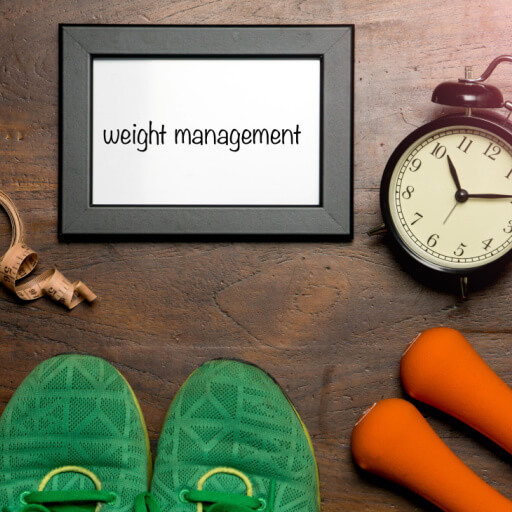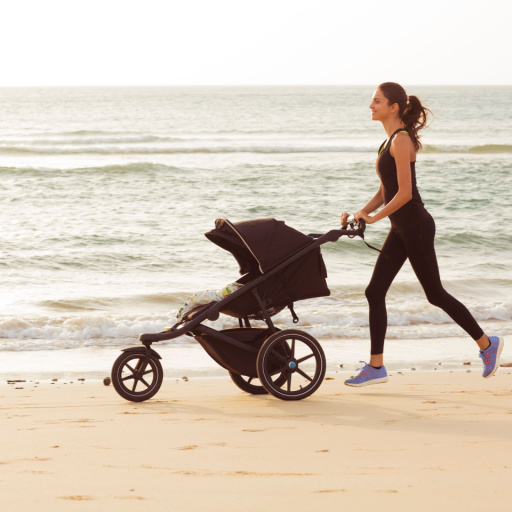Today, everyone is seeking to attain the ideal body weight. However, the weight management process is challenging. It requires dedication, consistency, and a disciplined approach.
An ideal body weight
An ideal body weight refers to the weight range appropriate for an individual’s height, age, and gender while maintaining their physical and mental well-being. These biometric factors help determine the medicinal dosage, food intake or level of exercise one would need to maintain their ideal body weight.
As we grow older, our metabolism changes. Metabolism, which is the process where the body gets energy from food, varies from person to person. So, some people would need to eat fewer calories and become more active to achieve and maintain their ideal body weight. And maintaining a healthy weight within the normal range is a crucial aspect of ageing gracefully.

Importance of ideal body weight
Working towards an ideal body weight is about more than just weight loss. It is about a healthy weight management process that involves maintaining a stable weight for a long time. Therefore, crash diets and exercise fads that promise weight loss are temporary and often unsustainable. When they inevitably become hard to maintain, we tend to fall back on our previous lifestyle habits, which played a major role in weight gain in the first place.
Being overweight can cause cardiovascular complications, decreased mobility, stroke or heart attacks, breathing issues, arthritis, infertility, depression, and anxiety. Being underweight can also lead to slowed metabolism, muscle loss, and vitamin and mineral deficiencies. In cases related to eating disorders, extreme weight loss can compromise hormonal regulation, kidney function, heart health, gastrointestinal system, and immune system. That is why it is crucial to have a weight management plan to achieve an ideal body weight.
Causes of weight gain
The leading causes of weight gain are:
- High-calorie intake
- High sugar intake
- Genetics
- High insulin
- Leptin resistance
- Medications
- Thyroid issues
- Mental health
- Muscle loss
- Disordered eating
- Inflammatory bowel disease
It is important to understand how weight can become unhealthy and the signs to look out for. Being overweight is not just a number on the weighing scale. Certain health tools can help you determine whether you fall into the obese or overweight category:
Body Mass Index (BMI)

BMI is a method of calculating your weight and height to determine whether you are underweight or overweight. A BMI:
- Under 18.5 is considered underweight
- Between 18.5 and 24.9 is regarded as a normal and healthy BMI
- Between 25 and 29.9 is considered overweight
- Over 30 is obese
- Over 40 is declared as morbidly obese
You can easily calculate your BMI on our online BMI Calculator. A person’s body composition essentially includes bones, organs, and lean mass compared to fat mass. You can also use methods such as biometrical impedance, skinfold measurements, and underwater weighing.
Wait-to-hip Ratio
You can also rely on other measuring techniques, such as the waist-to-hip (WHR) ratio. Measure and divide your waist circumference by your hip circumference to determine the ratio, which, according to the World Health Organisation, should ideally be 0.90 or lower in women and 0.99 in men. Excess weight around the waist leads to obesity.
Attaining your ideal body weight can happen with tactful weight management strategies. This process involves adopting a healthy lifestyle, being positive, and staying motivated. Take a look at certain tips that can help you in your weight management journey:
Nutrition tips

- Begin your day with a high-protein meal to keep you full and satiate cravings for a longer period. Distribute your calories throughout the day. Eating mini meals every 3-4 hours can help you keep your metabolism up and prevent drastic swings in blood sugar levels.
- Be mindful of what you eat. Write down what you eat daily to keep track of your portion size and monitor your total calorie intake. Make a conscious effort to reduce your portion size, no matter how tasty the food is. Using small plates and bowls to consume meals can help you in this process. Refer to nutrition labels before purchasing food products.
- Stay hydrated. Drinking plenty of water can boost your metabolism and aid in weight management. Staying hydrated keeps you full and reduces the urge to eat junk food.
- Plan your meals to avoid cooking in a hurry. Schedule your meals so that you have the necessary ingredients instead of whipping up an unhealthy food item.
- Include whole grains and low-fat foods in your meals rather than refined ones. Avoid processed foods as they are changed from their original, raw form. They also contain high amounts of sugar, salt, and unhealthy trans and saturated fats. Limit highly processed carbohydrates, including bread, pasta, and cakes. Eat lean protein (fish and chicken) and unrefined, unprocessed carbohydrates, such as fruits, vegetables, and beans. Choose brown rice over white, and choose fats from plant sources like nuts and olive oil.
- Watch the clock. Avoid having meals after 8 p.m., as consuming meals closer to bedtime can make it difficult for the stomach to digest.
- Focus on a healthy eating style, not on dieting.
Fitness tips
- Include regularly at least 30 minutes of exercise. Have a healthy snack (banana, oatmeal, or handful of carrots) to keep you fuelled during your workout rather than overeating after an intensive workout.
- It is also essential to keep your mental health in check. Stress, anxiety, depression, or emotional eating can lead to weight gain. Yoga and mindfulness meditation can bring a sense of peace and calm, leading to mental and physical well-being.
- Take the stairs instead of the elevator. If you have a desk job, walk around your office frequently. Preferably, take a public vehicle, get down a few stops early, and walk back the rest of the way.
- If you are not able to hit the gym every day, create a mini gym at home with basic equipment, such as weights, resistance bands, a Bosu ball, and a yoga mat.
- You can also indulge in other physical activities to stay fit, including swimming, dancing, gardening, walking, running, and jogging.
- That which gets measured gets improved. As you work out, your body undergoes changes. Check and keep an account of your measurements every day. You might not see changes immediately, but a detailed record will show promise in the long term. Also, stick with the same trainer who measures you.
Key Takeaways
- An ideal body weight is the weight range that is appropriate for an individual based on their height, age, and gender.
- Several factors can contribute to weight gain, including excessive calorie consumption, genetic predisposition, and mental health challenges.
- The Body Mass Index (BMI) is a method used to assess an individual’s weight in relation to their height, determining whether they are underweight, overweight, or at a healthy weight.
Stay tuned to the Activ Living Community. Keep up to date with the latest health tips and trends through expert videos, podcasts, articles, and much more in nutrition, fitness, mindfulness, and lifestyle conditions like Asthma, Blood Pressure, Cholesterol, and Diabetes.
You may also be interested in the following blogs:
- 6 Yoga Mudras For Weight Management: Sculpt Your Body And Mind
- From Heart Health To Weight Management: 5 Incredible Benefits Of Oats
Popular Searches
How to lower blood pressure | Fruits good for liver | Unhealthy foods | Ragi Benefits | Basal Metabolic Rate | Acupressure points for High Blood Pressure | Ayurvedic medicine for blood pressure | How to control cholesterol at home | Homeopathy for Asthma | Biological Age | Home remedies for TB | Natural beta blockers | Negative effects of internet | Types of walking | Blood pressure calculator | Blood sugar calculator | BMI Calculator





 1800-270-7000
1800-270-7000








